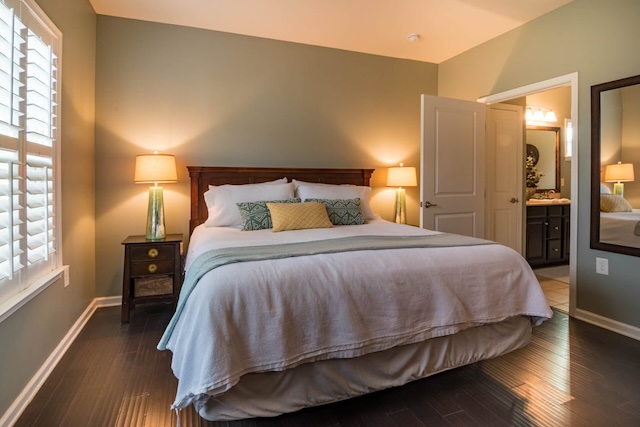Urban journalist Henry Grabar thinks he has found “one solution to America’s housing crisis”: convincing boomers to rent out their spare bedrooms to Gen-Zers. According to one review of census data, he says, the U.S. has 137 million spare bedrooms, more than enough to house all of the people now looking for affordable housing. Apparently, Grabar thinks that every child in America dreams of growing up to move out of their parents’ spare bedroom and into some stranger’s spare bedroom.
Photo by Curtis Adams.
I have bad news for Grabar: all of those spare bedrooms are being used. Just because they are called “bedrooms” doesn’t mean that’s their only possible use. They are home offices, libraries, dens, sewing rooms, hobby centers, home theaters, and so forth. Some of them are even used as guest bedrooms. It is rather arrogant of Grabar and others to think that, just because census data calls something a “bedroom” means that is the only use of the room. Even if those rooms were truly vacant doesn’t mean that anyone really wants to spend their lives in someone else’s spare bedroom.
This is just the latest episode of the blame-game in which people who consider themselves to be urbanologists try to pin the responsibility for high housing prices on the wrong parties. We already have cities taxing vacant homes in an effort to force people to rent or sell those homes. Then there are those who blame Airbnb and other vacation home rentals for high prices.
No doubt someone will be inspired by Grabar’s article to propose a tax on “spare” bedrooms that aren’t being rented out to homeless people. The real point of all of this, as usual, is to increase urban densities, as many planners see density as the solution to every problem when in fact density is the cause of numerous problems including high housing prices, congestion, air pollution, and more.
The truth is that the United States has plenty of room for all the homes we want: first homes, second homes, vacation rentals, homes with spare bedrooms, and homes with home offices. It is inappropriate and, dare I say, unAmerican to second guess how people use their homes and then tax them for using them in ways that the taxers don’t approve of.
The real problem is not a shortage of housing but a shortage of unregulated rural land on which new housing could be built. No such shortage exists in North Carolina, Texas, and other fast-growing states where housing is still affordable. Instead, the shortages are in California and other Pacific Coast states as well as in the Northeast, from Maryland to Massachusetts, where state or local land-use laws prohibit rural development. People like Grabar are deluding themselves if they think they understand cities but don’t understand that such rural restrictions are the real cause of high housing prices.









George Monbiot made the same argument 10 years ago. See: https://www.theguardian.com/commentisfree/2014/jun/02/housing-tax-property-help-to-buy-government-schemes The real motive behind this thinking is more likely elitism and a fetish for density than anything else. The urbanist types cannot fathom the idea that people desire room both inside and outside of their house. They also cannot understand that not everyone desires to live in density. Whenever I hear alleged empirical arguments about things like spare bed rooms, single family housing, yard or suburbia being “inefficient”. I immediately conclude that the type of person making the argument will not be happy until everyone is living in a Japanese capsule hotel. Of course once everyone is forced into that they will then argue that each capsule can fit more than one person. All the while the elite will have their vast country estates build on rent extracted from said densities.
ARThomas, why don’t the elites just extract rent from the single family homes instead, since not everyone desires to live in density?
Starting in 1918, if a residential building in Moscow housed less than standard 100f² per resident it was converted to communal apartment. Shared bath. Very, very efficient use of real property. No doubt it was every parent’s dream to have their children share their home with complete strangers.
Thank you beloved Stalin for a happy childhood!